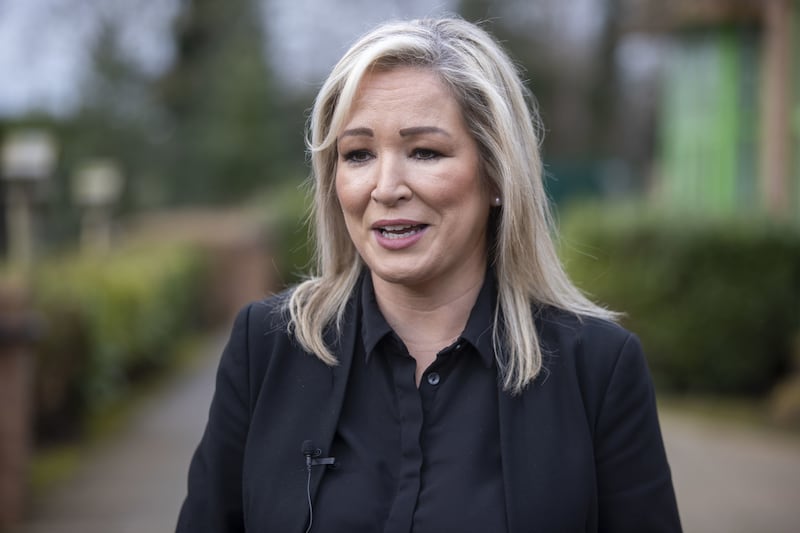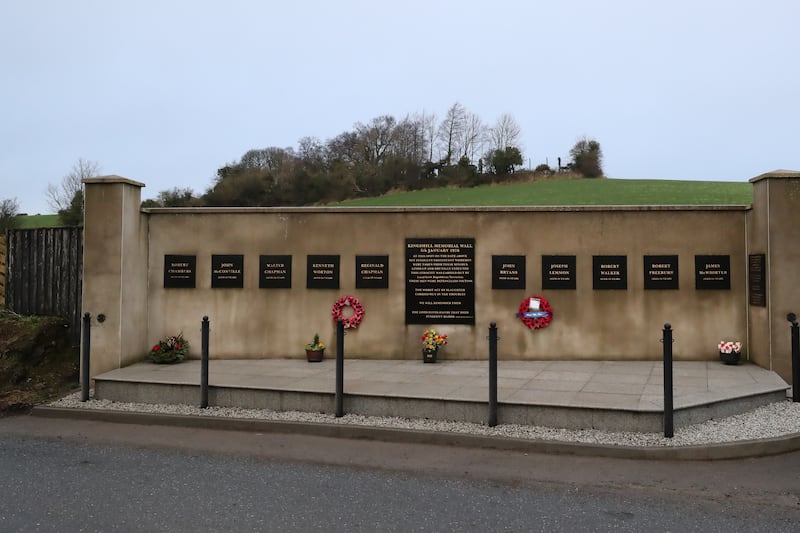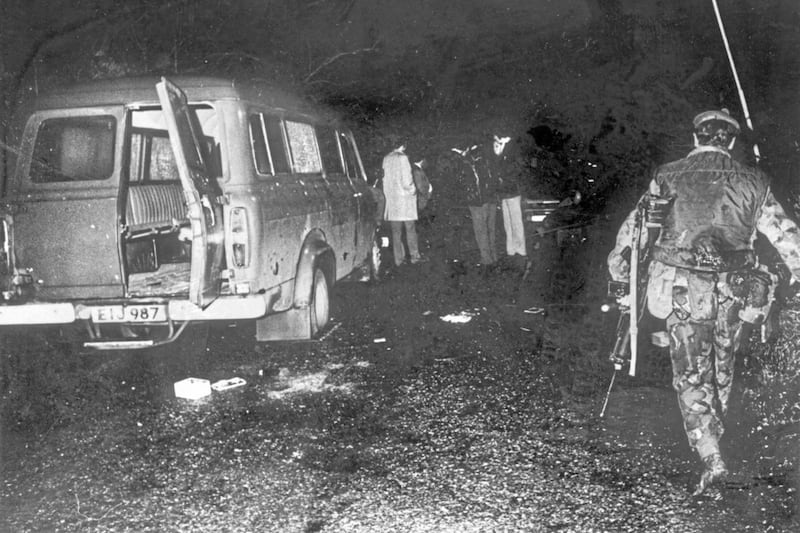Unionist parties have demanded a public inquiry into the Kingsmill massacre as they rounded on Sinn Fein for its failure to engage with the inquest into the murders.
Assembly business on Monday began with a debate on the outcome of the inquest into the January 1976 atrocity.
On Friday, a coroner ruled that the shooting dead of 10 Protestant workmen at Kingsmill in Co Armagh was an “overtly sectarian attack by the IRA”.
The atrocity, which was one of the most notorious of the Troubles, was claimed by a little-known paramilitary group calling itself the South Armagh Republican Action Force.
It was long seen as a front for the IRA, which was supposedly on ceasefire at the time of the sectarian massacre.
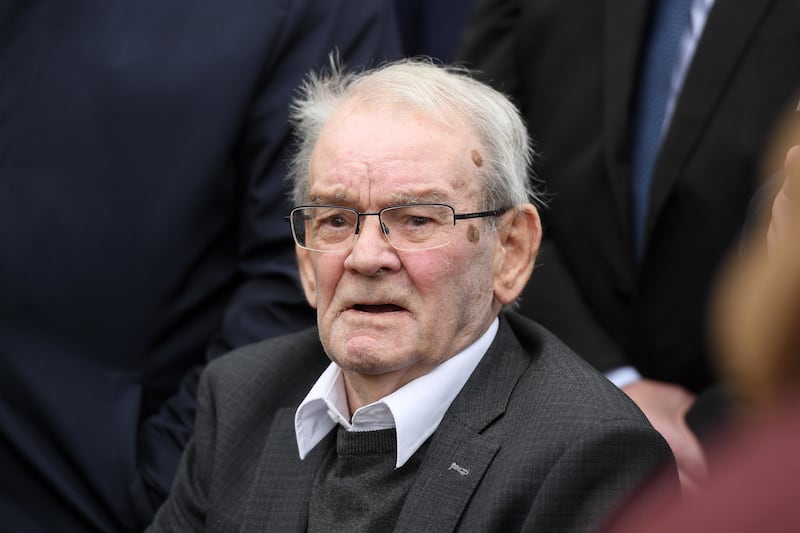
Delivering his findings in the long-running inquest, coroner Brian Sherrard heavily criticised the IRA, and its political representatives, for failing to engage with the proceedings.
The sole survivor of the shooting Alan Black and relatives of one of the victims have called for a public inquiry into the attack, insisting the coronial proceedings had failed to answer their questions.
Those calls were supported by the DUP, UUP and TUV during Monday’s Assembly matter of the day debate, which was tabled by TUV leader Jim Allister.
Sinn Fein’s Linda Dillon told the Assembly that Mr Black and those bereaved at Kingsmill were entitled to truth.
She claimed the UK Government’s Legacy Act was denying them the transparency they seek and called for the implementation for the shelved legacy mechanisms outlined in the Stormont House Agreement of 2014.
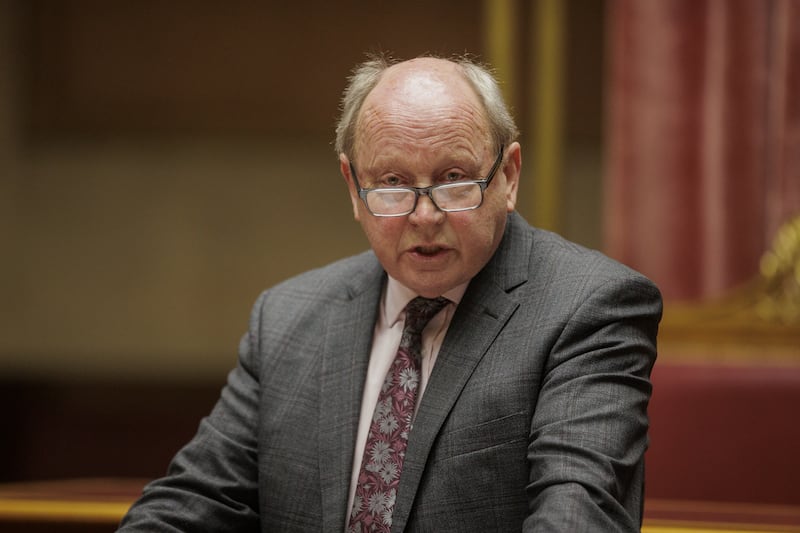
However, unionist rivals criticised her party’s stance, highlighting the coroner’s findings on the non-cooperation of the IRA’s political representatives.
They also contrasted events at Kingsmill with Sinn Fein First Minister Michelle O’Neill’s 2022 comment that there was “no alternative” to the IRA’s armed campaign during the Troubles.
The 10 workmen were killed when their minibus was ambushed by a gang of at least 12 men posing as British soldiers outside the village of Kingsmill on their way home from a textiles factory.
Those on board were asked their religion, and the only Catholic was ordered to run away.
The killers forced the 11 remaining men to line up outside the van before opening fire.
Mr Black survived despite being shot multiple times.
No-one has ever been convicted of the Kingsmill murders.
Opening Monday’s debate, Mr Allister said the massacre was the “ultimate epitome of the IRA’s evil sectarian murder campaign”.
The TUV leader, who named three deceased men he claimed were among the perpetrators of the attack, questioned Ms O’Neill’s “no alternative” comment.
“No alternative to taking 10 men off a bus and shooting them down like dogs because they were Protestant?” he said.
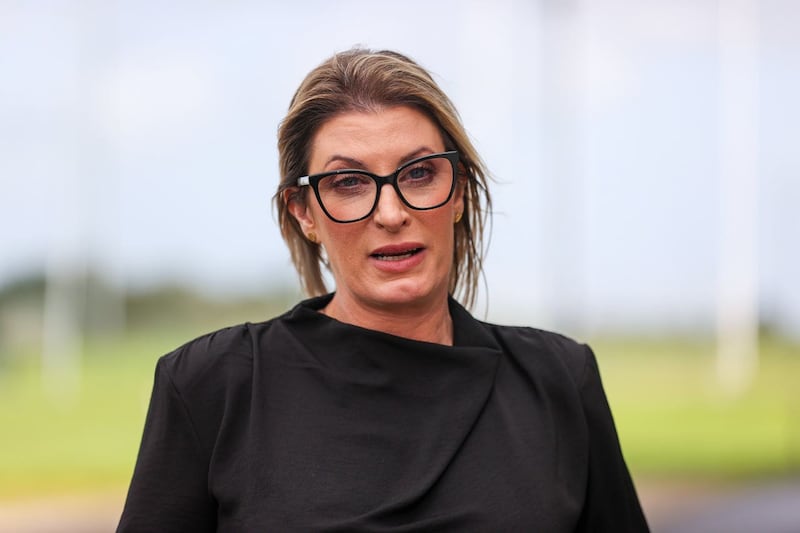
Mr Allister said it was “quite clear” that a public inquiry was required.
DUP deputy First Minister Emma Little-Pengelly said the atrocity was a “war crime”.
“Terrorism was always wrong and there was always an alternative,” she added.
Her party colleague Jonathan Buckley described the murders as an “act of genocide”.
He criticised the “silence” of Sinn Fein in regard to engaging with the inquest.
“The truth lies within their ranks,” he said. “And I would encourage them now, even at this stage, to please cooperate, give Alan Black and the families the justice that they deserve, the truth that they’re calling out for.
“And as for the ‘First Minister for all’. Where is she today? Was there an alternative? Surely there was to what can only be described as an act of genocide?”
Ulster Unionist leader Doug Beattie described the “unimaginable” attack at Kingsmill as an act of “appalling sectarian murder”.
“I’ve written to the Secretary of State (Chris Heaton-Harris) and I’ve asked that he does have an inquiry and he makes that inquiry public,” he said.
Mr Beattie also questioned whether Sinn Fein ministers were in breach of their oath of office that includes a pledge to support the police and courts.
“If you don’t do, it is purely words and words is absolutely no basis for government,” he said.
“So we’ll ask them all to reflect on that.
“And I’ve also written to the justice minister (Naomi Long) to ask for her adjudication on that particular issue.”
The Kingsmill shootings were seen as a retaliatory action in response to loyalist attacks against two Catholic families the day before in which six men were fatally injured.
The coroner acknowledged the “ostensible” link to the attacks on the O’Dowd and Reavey families, but he made clear that planning for the Kingsmill shootings had started “long before” the targeting of those two families.
A number of speakers referenced the loss suffered by the O’Dowd and Reavey families in their contributions to the debate.
Sinn Fein’s Ms Dillon said: “I am sorry for the lives lost at Kingsmill and for the loss of the O’Dowd and Reavey families…during that awful time. And for all of the families who’ve lost loved ones in the conflict. The Kingsmill families are entitled to truth and justice.”
She called on the UK Government to repeal its “shameful” legacy act and implement the Stormont House Agreement.
Alliance MLA Nuala McAllister said Kingsmill provided a “shameful reminder” of the actions of the IRA and the “brutality of sectarianism” in the past.
“Let’s be clear, only through truth and transparency and accountability of all involved and the pursuit of justice will these families finally be at peace,” she added.
SDLP leader of the opposition Matthew O’Toole said the atrocity was a “grotesque sectarian slaughter”.
“What happened all those years ago in 1976 was as disgusting and reprehensible an act of sectarian slaughter as it is possible to imagine,” he said.
Mr O’Toole also criticised those he accused of trying to pull a veil over the bloodshed of the Troubles.
Newry and Armagh MLA Justin McNulty, who is sitting as independent having lost the SDLP whip, said the murders has been permanently etched into the soul of his local community.
“The Kingsmill massacre was a brutally designed act with a sole objective of slaughtering totally innocent human beings for obscene motives,” he said.






